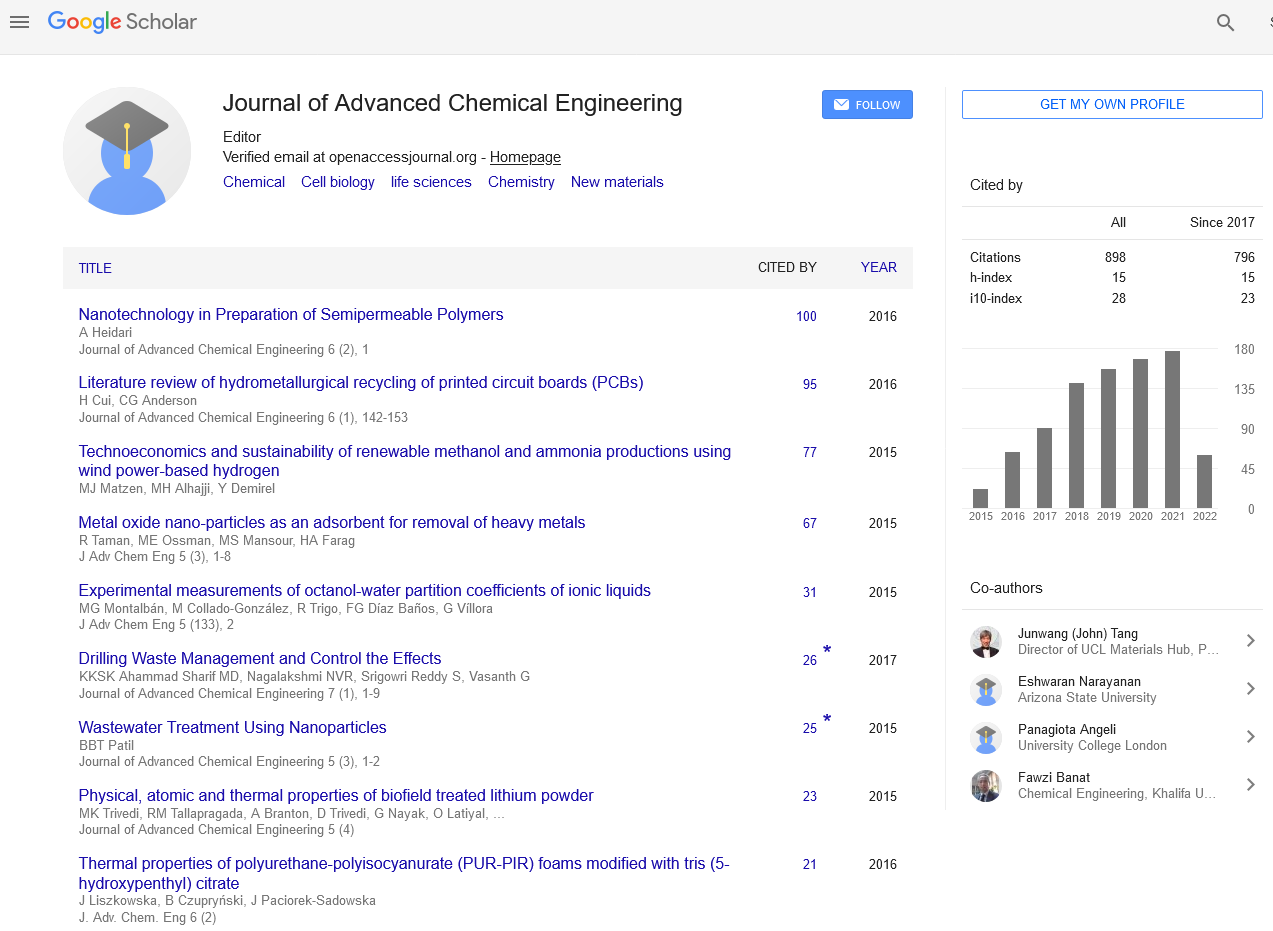Indexed In
- Open J Gate
- Genamics JournalSeek
- Smithers Rapra
- RefSeek
- Directory of Research Journal Indexing (DRJI)
- Hamdard University
- EBSCO A-Z
- OCLC- WorldCat
- Scholarsteer
- Publons
- Geneva Foundation for Medical Education and Research
- Google Scholar
Useful Links
Share This Page
Journal Flyer

Open Access Journals
- Agri and Aquaculture
- Biochemistry
- Bioinformatics & Systems Biology
- Business & Management
- Chemistry
- Clinical Sciences
- Engineering
- Food & Nutrition
- General Science
- Genetics & Molecular Biology
- Immunology & Microbiology
- Medical Sciences
- Neuroscience & Psychology
- Nursing & Health Care
- Pharmaceutical Sciences
Arabinoxylans properties and the microspheres production for colon-targeted insulin delivery
Joint Event on 8th Edition of Biopolymers & Bioplastics & Polymer Science and Engineering Conferences
October 15-16, 2018 | Las Vegas, USA
Ana M Morales-Burgos and Elizabeth Carvajal-Millan
Research Center for Food and Development (CIAD), Mexico
Scientific Tracks Abstracts: J Adv Chem Eng
Abstract:
Arabinoxylans (AX) are biopolymers present mainly in cereal grains, they are fermentable by colonic bacteria and able to form covalent gels through the oxidation of ferulic acid molecules. These gels are low affected by pH changes and suitable for colon-targeted insulin administration. The aim of this work was to study arabinoxylans properties and to produce and analyze AX-insulin microspheres. AX obtained from maize bran presented high ferulic acid content (22.4�0.9?g/mg) and an arabinose to xylose ratio of 0.6. The antioxidant activity of AX was studied by ABTS and DPPH assays obtaining the IC50 values of 1050.9�24.6 and 681.1�41.2?g/ml, respectively. The gelation property of 1% (w/v) AX solutions was analyzed by rheology using laccase. Gels with a storage modulus of 530 Pa and a mechanical spectrum characteristic of a solid-like material were obtained. A triaxial electrospray system was used to prepare AX-insulin microspheres with a mean diameter of 240?m and a uniform insulin distribution as observed by confocal laser scanning microscopy. During the in vitro analysis under simulated gastrointestinal conditions, 20�0.5% of encapsulated insulin was released. Finally, the in vivo analysis performed in Wistar rats presenting type I diabetes induced by streptozotocin showed a hypoglycemic effect from 16 to 18h after AX-insulin microspheres oral administration. The results suggest AX microspheres as an attractive colon-targeted drug delivery system. Further studies are needed to investigate the insulin stability in the AX microspheres during storage.
Biography :
Ana M Morales-Burgos has completed her Master degree in Biotechnology at the University of Guadalajara and she is actually finishing her PhD studies in Biopolymers at the Research Center for Food and Development in Mexico. She has published 1 paper and 2 chapters in reputed editorials and her research studies are focused on the extraction and characterization of natural polymers and the development of biomaterials.
E-mail: ana.morales@estudiantes.ciad.mx


